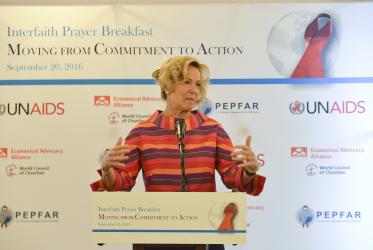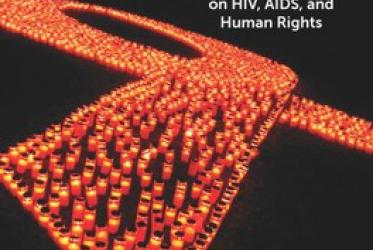Displaying 81 - 100 of 136
20 October 2016
Faith-based groups bring hope for a fast-track HIV response
20 September 2016
WCC book featured in UN discussion on gender, religions and health
16 September 2016
Creation, unity and hope focus of WCC greeting in USA
06 September 2016
World Social Forum sows seed of hope in global north
17 August 2016
United Nations High Level Meeting on AIDS
06 May 2016
Voices from HIV workshop reflect deep impact
07 April 2016











